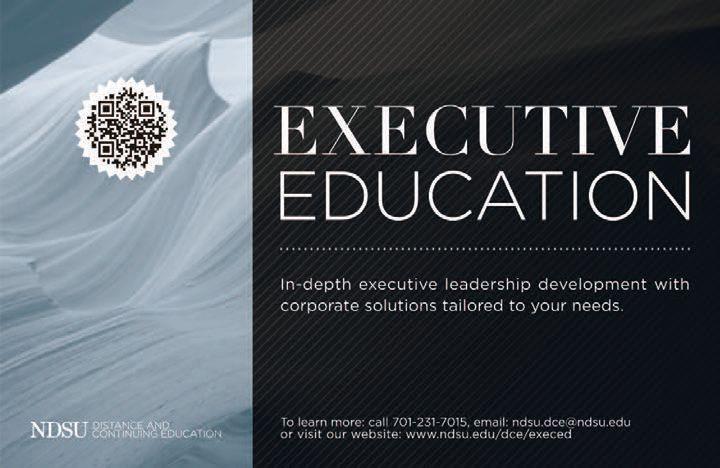
3 minute read
Thinking ‘lean’ in health care
Focus on efficiency, waste reduction combats workforce issues and budget constraints
BY JANELLE KLINKE
Many people hear the term “lean” and think of automaker Toyota, which is credited for developing a waste reduction process for its manufacturing system that inspired wider adoption of the lean concept in manufacturing. Lean is focused on continuous process improvement, reducing waste, improving work flow, reducing steps, asking questions such as: How can we improve this process? What extra steps can be eliminated? What is my relationship to others in the process and how could that be improved. Toyota, Total Quality Management and Continuous Quality Improvement lead the way to creating tools and techniques for applying this type of thinking to people and systems in the workplace.
Quality is not a new term to the long-term care industry, however, and neither is the lean concept. There are national quality programs and state level quality programs that provide key quality indicators and benchmarks for all skilled nursing and assisted living organizations. Those organizations are measured against each other as well as others at both a state and national level to ensure they are meeting those quality goal indicators.
In addition to quality program benchmarks, ongoing labor market challenges, reimbursement legislation in border states, rising operating costs and a strong desire to meet the customer’s service expectations motivated Moorhead, Minn.-based Eventide Senior Living Communities to launch a Lean Quality journey in January.
“We recognized that our traditional management systems were falling short of addressing the pace of change and expectations of our organization,” says Eventide CEO Jon Riewer.
The first step necessary in launching Lean Quality efforts is to partner with experts who can help build the knowledge and skills required to be successful. Thanks to a Minnesota Job Skills Partnership grant, Eventide was able to do that. Minnesota Job Skills Partnership grants are designed to bring educational institutions and business and industry together. Janelle Klinke, vice president of human resources at Eventide, and Mary Ryan, director of custom training services at Minnesota State Community and Technical College (M State) in Moorhead began outlining and planning the project in the summer of 2012. Eventide and M State Custom Training Services in Moorhead successfully authored and were awarded this grant in late 2012.
In January, six core groups comprising approximately 75 employees began learning the lean concepts and tools under the guidance of Deb Johnson, lean consultant at MState’s Detroit Lakes, Minn., location, and immediately began creating cross-functional teams of employees who problem solve everyday issues in the workplace. These teams are made up of employees from all levels of the organization including front-line caregivers, charge nurses, nurse managers, and included administration and ancillary departments such as activities, dining services, and maintenance. Six new lean teams will begin learning and applying the basic concepts and techniques this fall and winter.
The executive team and corporate office staff are applying lean techniques to improve processes, reduce waste and provide even better service to the Eventide campuses.
Eventide has found that lean is much more than simple tools and techniques. It provides a framework of working together and forming relationships with open attitudes and new habits that allow the organization to improve the systems in employees’ daily work life. “We know that the culture and management process are the systems that will sustain Lean Quality thinking at Eventide,” Riewer says. “We are building sustainability across all campuses through train the trainer, process improvement project events, and we are engaging our staff in entirely new ways.”
Key leaders at Eventide met Oct. 11 to continue the lean conversation and create a strategic plan for defining “service” at Eventide, how “hospitality” is a significant ingredient of everything the organization does and how it will measure employee delivery of service and hospitality. Organization leaders believe that if these items can be identified and defined it will support Lean Quality efforts throughout the organization at all levels. For example, service can be measured in quality and quantity related to tasks; hospitality is a “feeling” we infuse into our environments through people, behaviors and attitudes.
Value-added key strategies Eventide intends to develop include:
1.Team building across the organization
2.Cross-functional team development
3.Improved business processes for greater efficiency and cost control
4.Better lean leaders — knowledgeable engaged supervisors who can lead the direct care staff through sustaining Lean Quality
5.Improved job satisfaction across all employees
6.Improved customer satisfaction through improvements to legacy procedures with a renewed focus on “hospitality and service”
7.A sustainable lean program that is integrated with all other quality programs at Eventide
These accomplishments tell a story about connections between people and measurable results in each of the key areas. “The preliminary results are exciting,” Riewer says. “I am pleased to see Eventide employees coming together in new ways. We’re making it OK to question legacy systems and empowering employees at all levels to be innovative with their problem solving. Lean at Eventide has resulted in reduced inventory, less waste, improved time management, organized and safer work spaces, along with enhanced problem-solving across the organization.” PB
Janelle Klinke Vice President, Human Resources Eventide Senior Living Communities jklinke@eventide.org










